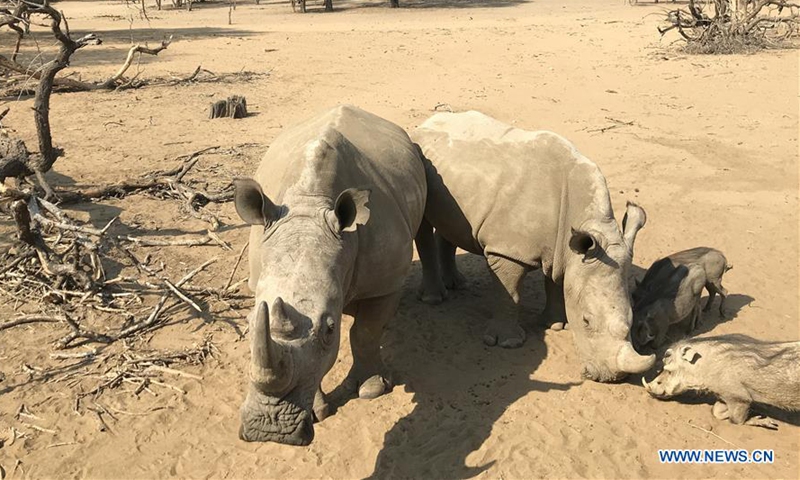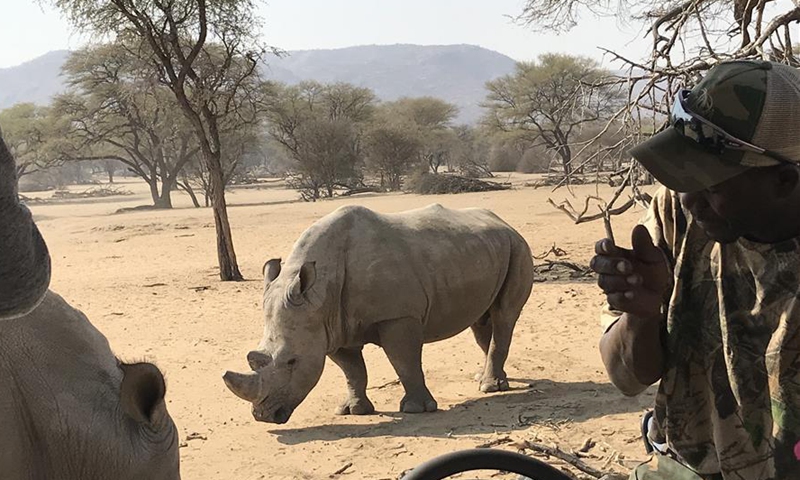Namibia's rhino conservation continues to be hampered by poaching incidents: minister

Photo taken on Sept. 7, 2019 shows rhinos in Okapuka Ranch, central Namibia. Namibia's rhino conservation remains challenged by poaching incidents despite a decline in poaching numbers as a result of ongoing interventions by the government, communal conservancies, private custodians, and NGOs, an official said Tuesday. Namibia's Minister of Environment, Forestry and Tourism, Pohamba Shifeta, said this as the country joined the rest of the world in celebrating World Rhino Day Tuesday. (Photo by Sun Yin/Xinhua)
Namibia's rhino conservation remains challenged by poaching incidents despite a decline in poaching numbers as a result of ongoing interventions by the government, communal conservancies, private custodians, and NGOs, an official said Tuesday.
Namibia's Minister of Environment, Forestry and Tourism, Pohamba Shifeta, said this as the country joined the rest of the world in celebrating World Rhino Day Tuesday.
"However, poaching patterns are highly dynamic and any amount of poaching remains a major concern to the ministry. In this regard the ministry and its partners have carried out a series of pro-active measures designed to prevent poaching," he said.
According to Shifeta, Namibia has recorded 22 rhinos poached to date this year; 46 in 2019; 78 in 2018; 55 in 2017 and 61 in 2016. The ministry is determined that the best strategy for 2020 to 2021 would be to dehorn as many rhinos as possible in poaching hotspots.

Challenged by poaching incidents despite a decline in poaching numbers as a result of ongoing interventions by the government, communal conservancies, private custodians, and NGOs, an official said Tuesday. Namibia's Minister of Environment, Forestry and Tourism, Pohamba Shifeta, said this as the country joined the rest of the world in celebrating World Rhino Day Tuesday. (Photo by Sun Yin/Xinhua)
Shifeta furthermore said it is also necessary to translocate rhino out of high-risk areas to safer locations, thus establishing new populations and supplementing existing populations to stimulate growth and manage density-dependent factors.
Meanwhile, the minister commended law enforcement and intelligence that has been key to reducing the threat of poaching.
"The newly established K9 unit continues to gain success and has been issued with a state-of-the-art, fully kitted vehicle. The unit is now permanently deployed in Etosha National Park and more units are planned for the future," he said.
Namibia currently has a third of the entire remaining black rhinos on the planet and the second largest white rhino population in the world after South Africa.